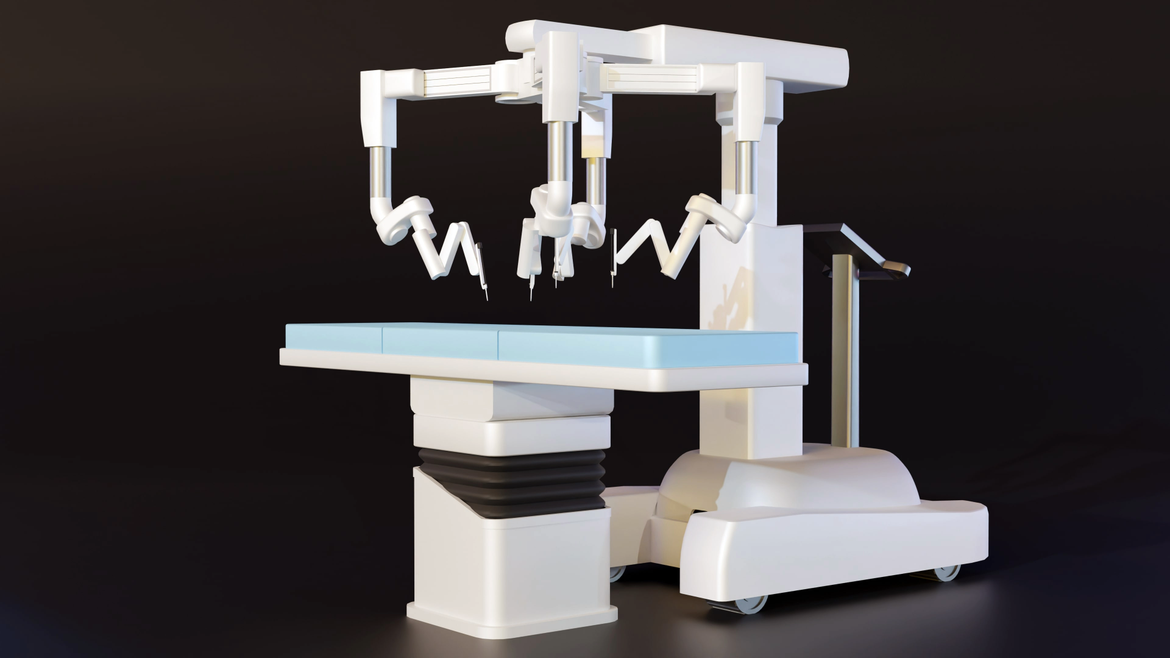Sandra Sultzer underwent a procedure "designed to treat her colon cancer" but "experienced thermal injury to the small intestine, resulting in a perforation" caused by the da Vinci surgical robot used by the operating doctor, alleges the lawsuit.
A bereaved husband is suing one of the country's most lucrative medical supply companies on behalf of his late wife. Howard Sultzer alleges that his wife Sandra Sultzer died in February 2022 as a direct result of an injury she suffered during a surgical procedure in September 2021, according to his lawsuit.
In a lawsuit filed in Florida federal court earlier this week, lawyers for Sultzer are seeking both compensatory and punitive damages from Intuitive Surgical Inc., the company that "designed, manufactured, tested, sold, promoted and labeled" the da Vinci surgical robot.
The claims for relief are cited in the lawsuit as negligence, design defect, failure to warn and loss of consortium.
Intuitive Surgical did not respond to a summons in the case issued by the court last week, according to the docket. No lawyer is listed for the defendant and the company has not yet responded to these allegations. Intuitive Surgical does warn on its website that the da Vinci surgical robot could possibly cause injuries like the one Sandra allegedly suffered during her operation..
"Serious complications may occur in any surgery, including surgery with a da Vinci system, up to and including death," the company writes. "Examples of serious or life-threatening complications, which may require prolonged and/or unexpected hospitalization and/or reoperation, include but are not limited to, one or more of the following: injury to tissues/organs, bleeding, infection, and internal scarring that can cause long-lasting dysfunction/pain."
Sandra underwent a procedure "designed to treat her colon cancer" but "experienced thermal injury to the small intestine, resulting in a perforation" allegedly caused by the da Vinci surgical robot used by the operating doctor, claims the lawsuit.
That injury allegedly caused continual abdominal pain and fever for Sandra, who allegedly had to undergo additional medical procedures because of the injury she suffered from her surgery, according to the lawsuit.
"The injury suffered by Mrs. Sultzer caused her pain and emotional distress," says the lawsuit. "Mrs. Sultzer incurred expense of medical care, hospitalization, treatment, nursing care and treatment, and the expense of rehabilitative care and treatment."
Lawyers representing the late cancer patient's estate allege that she did not receive enough information about the surgical robot before undergoing the procedure,
"Prior to consenting to the da Vinci surgery and because of ISI’s inadequate disclosures, Mrs. Sultzer was not aware that the instruments to be used for the surgery had insulation problems that made them more prone to causing unintended burn than traditional laparoscopic instruments," alleges the lawsuit. "She was not aware that the da Vinci surgery would subject her to higher complication rates with no demonstrated benefit in outcome. She was also not aware that the da Vinci surgery would be more expensive than the traditional laparoscopic surgery."
The da Vinci is a robotic surgical system consisting of medical tools such as forceps, scissors and scalpels which are controlled by the operating doctor from a console, according to Intuitive Surgical.
"Its average selling price for da Vinci systems was $1.47 million for the nine months that ended September 30, 2014," claims the lawsuit.
The lawsuit alleges that a flaw in the da Vinci's design caused the death of Sandra and complications for other patients.
"The vast majority of these [hundreds of complaints and reports received by the Food and Drug Administration between July 2009 and December 2011] concerned a little rubber sleeve placed on the end of certain da Vinci metal instruments, designed as an insulating device to prevent electricity from radiating out. The plastic sleeves were referred to as tip cover accessories," the lawsuit alleges. "The critical defect consisted of cracks or slits that prevented the tip cover accessories from properly insulating the metal instruments and allowed electricity or sparks to escape, which is known as arcing. Because the arcing usually occurred outside of the surgeon’s camera field of vision, blood vessels and organs were burned without the medical team’s knowledge."
A 2014 letter from the FDA said that Intuitive Surgical addressed the agency's concerns.
Lawyers for the estate are seeking a jury trial in the case, according to the lawsuit.
Related News






